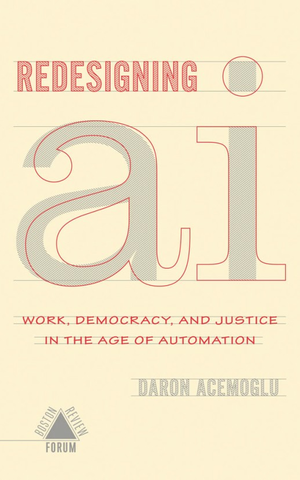
Daron Acemoglu is Charles P. Kindleberger Professor of Applied Economics at MIT and a Research Associate of the National Bureau of Economic Research. He is coauthor of Why Nations F...
Show More
Number of Pages: 192
ISBN-13: 9781946511621
Mentions
See All
Hadjar Homaei @xeegeex
·
Jun 18, 2022
- Answered to What are the best critical works that have been written about AI?
- From Twitter